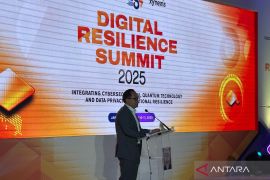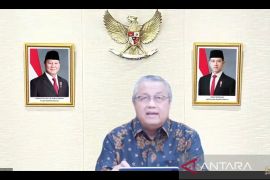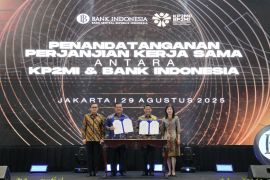"By taking advantage of big data, we are able to predict something more accurately and quickly," Bank Indonesia Deputy Governor Erwin Rijanto said after opening an international seminar on big data in Nusa Dua, Bali, on Thursday.
Big data refers to voluminous amounts of structured or unstructured data that organizations can potentially mine and analyze for business gains.
Rijanto said nearly 30 percent of the world`s central banks including Bank Indonesia have made use of big data which help them formulate policies easily.
The policies are related to monetary and macro-prudential analyses, financial system stability, information needs and new researches, he said.
The other advantages of big data are new indicators which enable the central banks to map the linkage of financial institutions through a network analysis to mitigate the systemic risks of the financial system, he said.
In addition, big data will also enable their users to identify economic behavior through the analysis of transactional data and unstructured data such as news stories and social media, he said.
"We can also monitor public expectation and perception of BI policies more accurately," he said.
However, the main challenges of taking advantage of big data are related to the exploration of big data and complicated process, not to mention good governance, time and human resources, he said.
Reporting by Dewa Wiguna
Editing by Suharto, Yoseph Hariyadi
Reporter: Antara
Editor: Fardah Assegaf
Copyright © ANTARA 2018











